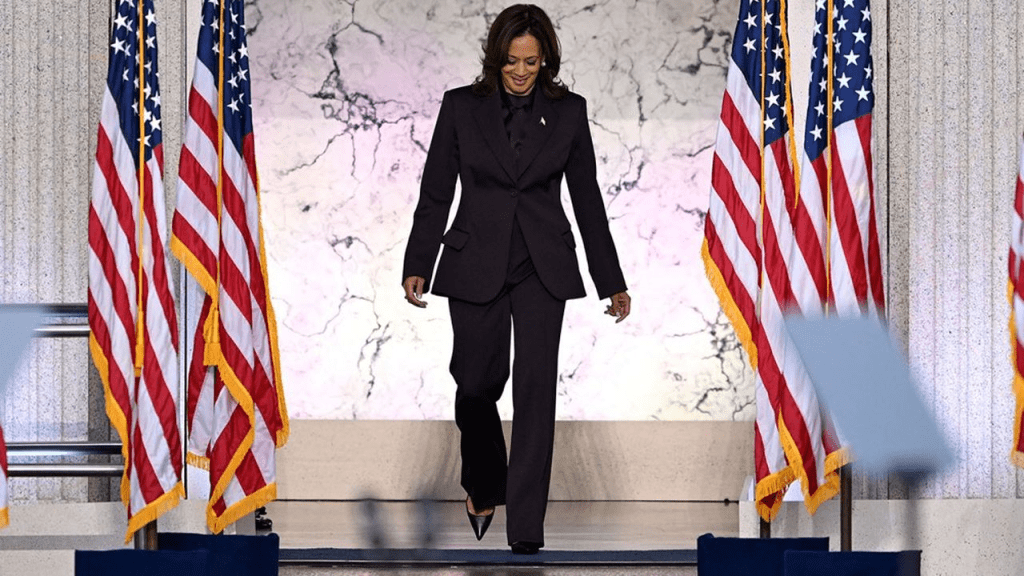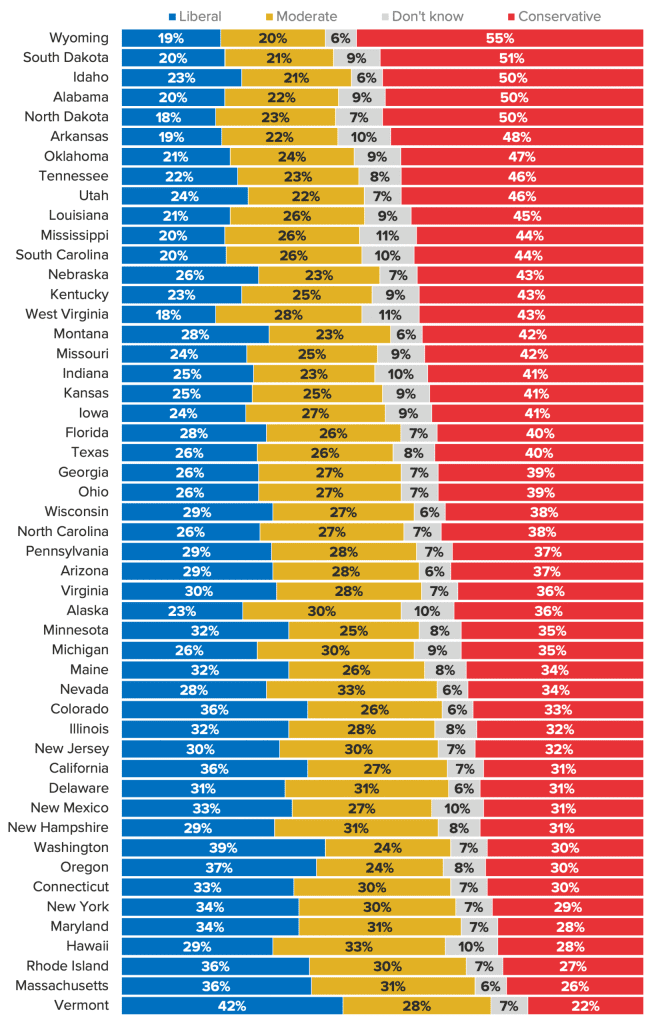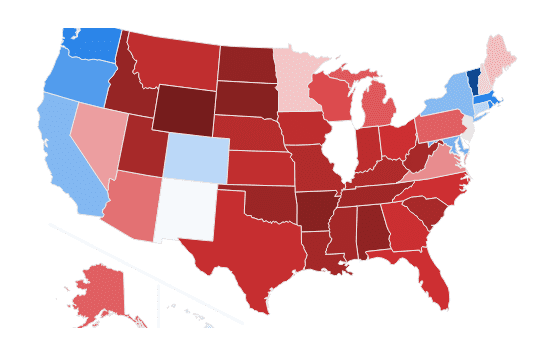Morning Consult Poll Reveals Conservatives Lead in 38 of 50 U.S. States, Redrawing the Political Map Ahead of 2028
A new nationwide poll from Morning Consult has revealed that conservatives now outnumber liberals in 38 of America’s 50 states — a striking shift that paints a picture of a country far more ideologically red than its recent election results might suggest. The findings, based on surveys conducted throughout 2025, highlight how conservative identification remains strong across most of the nation, even as Democrats continue to win presidential races and urban-dominated contests.

According to the poll, which measures political ideology by asking voters to identify as conservative, liberal, or moderate, a majority of respondents in 38 states say they lean conservative. In deep-red states such as Wyoming, South Dakota, and Alabama, the conservative advantage is overwhelming, with margins exceeding 20 points. But even in swing states like Nevada, Pennsylvania, and Wisconsin, conservatives still slightly outnumber liberals — an important distinction that helps explain why many of these states remain politically competitive despite recent Democratic victories.

The study provides a nuanced look at how America’s ideological balance differs from its partisan outcomes. States such as Florida and Texas show strong conservative majorities that align closely with Republican control, while states like Michigan and Arizona reveal more complicated landscapes — regions where conservative identity remains dominant, yet Democratic candidates have managed to win key elections through urban turnout and moderate crossover votes.

Morning Consult’s analysis underscores a broader truth about U.S. politics: cultural and ideological identity often runs deeper than party labels. Conservatives may dominate numerically across most states, but that advantage doesn’t always translate into electoral dominance. Urban areas, particularly large cities like Chicago, Los Angeles, and New York, hold heavy concentrations of liberal voters who tip statewide elections in Democrats’ favor. This dynamic is one reason why the Electoral College and congressional representation often look more balanced than raw ideology might suggest.
Political strategists are paying close attention. For Republicans, the poll offers both validation and a roadmap. It reinforces the idea that conservative values — particularly those tied to economic freedom, national security, and traditional family structures — remain deeply rooted in much of the country. For Democrats, however, the results are a reminder that winning requires more than enthusiasm in blue metropolitan centers. Outreach to suburban and rural voters, where conservative identity is strongest, could determine future control of Congress and the White House.

Yet experts caution against assuming this ideological map guarantees long-term political outcomes. While more Americans may describe themselves as conservative, the definition of that term continues to evolve. Younger generations, especially under 35, tend to identify as fiscally conservative but socially moderate, reshaping the ideological profile of many states. Meanwhile, moderates — who make up a large share of the electorate — often swing elections based on specific issues rather than ideological loyalty.
Still, the dominance of red shades across Morning Consult’s map reinforces what many have suspected: beneath the headlines and the urban electoral noise, America remains a largely center-right nation. The poll’s findings come at a time when debates over voter integrity, border security, and cultural identity have sharpened the divide between national narratives and state-level realities.

The visual of 38 red-leaning states struck a chord across social media, sparking conversations about representation and fairness in the political system. Some commentators argue it shows how America’s conservative majority is often overshadowed by urban majorities concentrated in a few states. Others view it as proof that the nation’s ideological divide is more about geography than party — a story of cities versus heartlands, coasts versus the interior.
Regardless of interpretation, the results carry major implications for the 2028 election cycle. Both parties are being forced to confront the reality that ideological alignment doesn’t automatically translate into electoral victory. For conservatives, it’s a call to maintain engagement and voter turnout. For liberals, it’s a reminder that winning hearts beyond coastal strongholds is essential.
In the end, Morning Consult’s survey paints a powerful picture of America in 2025: a country still wrestling with its political identity, one where most voters lean right but where outcomes are decided by razor-thin margins in just a handful of swing states. The data doesn’t just color the map red — it highlights how deeply personal, regional, and complex the American political soul remains.



